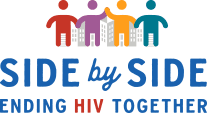We all want to be safe and healthy, especially when talking about sex. But sexually transmitted illnesses can be complicated. That’s why we’re here! This article will help you decide if PrEP is right for you by answering three essential questions: What does PrEP stand for? Who should use PrEP? How do I get started on PrEP?
Let’s dive in!
What is PrEP?
PrEP stands for Pre-Exposure Prophylaxis. PrEP is a once-a-day medication that can give you protection against HIV.
How does PrEP work?
When you are exposed to the virus, it takes a few days for HIV to fully set in. When used as instructed, PrEP can block HIV from spreading throughout the body.
How effective is PrEP?
PrEP is more than 90% effective against HIV, but only when taken daily.
How often do I have to take PrEP?
PrEP should be taken once a day, at about the same time every day.
How long does it take to start working?
Taking PrEP every day will allow it to reach max effectiveness after 7 days for anal sex and 20 days for vaginal sex.
Does PrEP have side effects?
PrEP is safe and well-tolerated by most people. It has been used since 2004 to help people who are already living with HIV. However, it can cause mild side effects, including stomach aches, headaches, and weight loss. In a small number of people, it may cause kidney or bone problems. If you think you have any of these side effects from PrEP, contact your doctor.
Will PrEP protect me from other STIs or pregnancy?
PrEP does not protect against other STIs or unwanted pregnancy, but you can use it with other prevention methods like condoms.
Will PrEP affect my hormones treatment?
More research is needed, but PrEP appears to work for people who are taking gender-affirming hormones.
If I start now, do I have to take PrEP forever?
No. With guidance from a health care provider, people can start or stop taking PrEP at different times in their lives. But they need to remember that it needs to be taken every day for 7-22 days before it will work. And they should talk to a doctor before starting or stopping PrEP.
Is PrEP right for me?
Only a medical provider can answer that question. Generally, PrEP is for anyone that has an increased risk of getting HIV. This can include people in relationships with someone living with HIV, people who don’t always use condoms or people who share needles. Studies show that it can be a good fit for people of various gender identities and sexual orientations.
How else can I stay negative without PrEP?
There are a few steps you can take to lower the chance of getting HIV:
- Use a condom. Use a condom to avoid an unwanted pregnancy or sexually transmitted infection like HIV. There are many different types and sizes. Make sure you explore and find the one that is right for you.
- Lube up. Use water-based or silicone-based lubricant to prevent tears in the skin. For anal sex, use a water-based lubricant. For vaginal sex, use a silicone-based lubricant. These will also help keep condoms from breaking during sex.
- Get tested regularly. The only way to know if you or a partner has HIV is to get tested. You should do it at least once per year, or more often if you have multiple sexual partners or use injection drugs. Visit our resource finder to locate a free and confidential testing center close to you.
- Test and treat sexually transmitted infections. People who have STIs sometimes get HIV. It is easier to get HIV or pass it on to someone else if you have an active STI.
- Talk to your partners. If you have a sexual partner, ask them when they last tested for HIV and other STIs. You can even get tested together. Visit our resource finder to locate a free and confidential testing center close to you.
- Undetectable means HIV can’t be shared. People with HIV can live healthy lives if they take their medicine, including reaching an undetectable status. People living with HIV can’t give the virus to other people while undetectable. If one partner is not undetectable, you should use condoms or PrEP.
- Be careful when using drugs and alcohol. These substances can put you in situations where your chances of contracting HIV are higher.
- Use new needles. If you inject hormones, drugs, or steroids, you should use a fresh, clean syringe and other equipment every time you inject.





